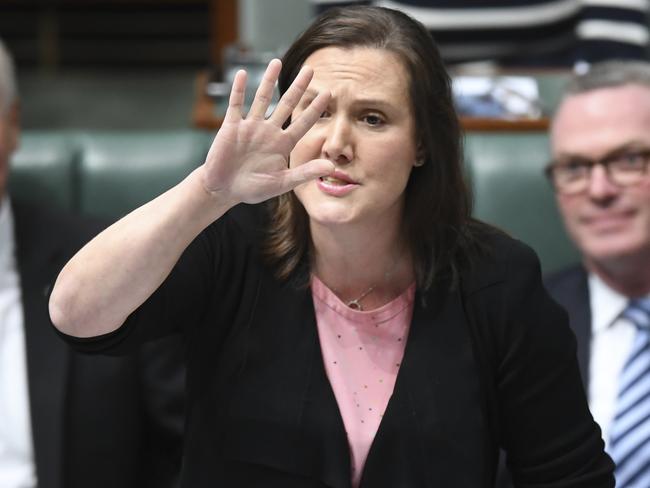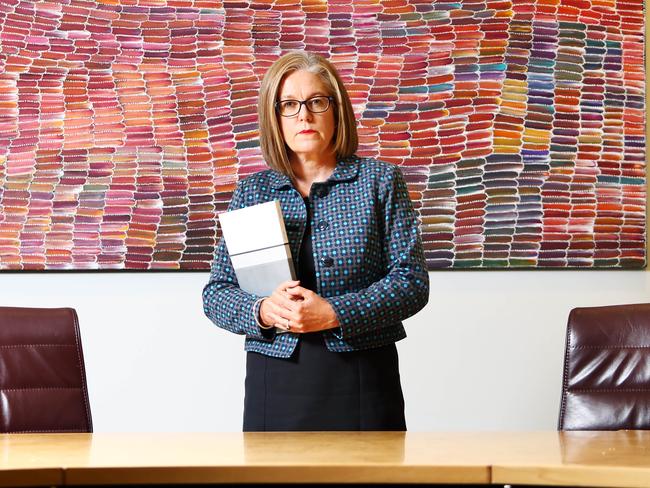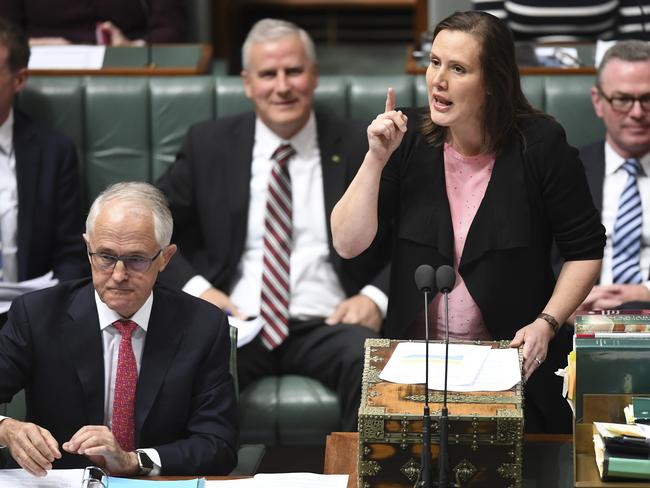Superannuation ‘rip-off’ laid bare in new report as shake-up looks to fix shambles
THE government has been forced to defend its amnesty for small businesses who failed to pay super entitlements to their employees, after a report argued the $2.6 trillion system needed an overhaul.
National
Don't miss out on the headlines from National. Followed categories will be added to My News.
MALCOLM Turnbull has faced a grilling over his 12-month amnesty for businesses that have ripped off Australian workers by underpaying their superannuation as a new report recommends a drastic overhaul of the $2.6 trillion super sector.
The amnesty, which is in government legislation before Parliament at the moment, is designed to encourage employers to pay their staff everything they are owed, including the employee’s individual shortfall, nominal interest, and any related general interest charge on unpaid amounts of super.
It will waive penalties for employees who “self-correct historical superannuation guarantee non-compliance” for a year.
It also allows businesses to claim tax deductions for any contributions to staff they make during the amnesty period to “offset the superannuation guarantee charge”.
Opposition leader Bill Shorten kicked off a Labor attack on the Prime Minister over the amnesty in Question Time today, asking: “Can the Prime Minister please explain to the Australian people why it is government policy to forgive businesses who have illegally failed to pay the employee superannuation for over 25 years by waiving all penalties and rewarding them with tax deductions?”
Mr Turnbull initially responded saying the government has done more than any previous government to tackle corporate tax avoidance.

He responded to a later question by saying the amnesty was designed to recover $200 million in unpaid superannuation for workers.
Mr Turnbull hit back at Mr Shorten, accusing him not supporting the bill that would help workers while posing as their “champion”.
Financial Services Minister Kelly O’Dwyer said the government was “not letting anybody off the hook from paying the superannuation guarantee entitlements”.
“This government has put in place a mechanism to allow small and medium-sized businesses, who otherwise have not paid superannuation guarantee entitlements to come forward, under an amnesty, and make good every single dollar, every single dollar, that they owe their workers,” she said.
The showdown over the amnesty comes as the Productivity Commission released its scathing report into Australia’s superannuation sector.
Both major parties have indicated support for its recommendations to overhaul the $2.6 trillion sector.
PRODUCTIVITY COMMISSION REPORT SLAMS INDUSTRY
The angry scenes in parliament came after the release of a Productivity Commission report
which exposed the extent of issues in the superannuation sector and called for a shake-up of the $2.6 trillion industry.
The report found the sector was riddled with unnecessary fees and that many Australians had useless duplicate superannuation accounts.
One of the key recommendations was to establish a new body that would highlight for Australians the ten best-performing superannuation funds.
Financial Services Minister Kelly O’Dwyer today said the sector needed to be fixed and government was starting the process.
She said it was scandalous people’s retirement nest eggs were being eroded and that young people and low income workers in particular were being ripped off.

“We’re going to use the Australian Taxation Office to actively reunite people with their money which will mean in just one year $6 billion being returned to members,” Ms O’Dwyer said.
The measure, designed to claw back money for Australians from their previous accounts, was announced in the budget earlier this month.
Ms O’Dwyer said she was concerned about the zombie insurance accounts, where people have cover across multiple funds, but often couldn’t lodge claims because their super balance is too low.
Shadow Treasurer Chris Bowen also welcomed the report, saying the commission’s recommendations appeared to be sensible.
“Many of the recommendations are about putting members first, which must be at the centre of superannuation,” he told reporters in Canberra.
“So if the Government chooses to take a constructive and cooperative approach on the Productivity Commission report they will find engaging partners in the Labor Party.”
Mr Bowen hit out at Ms O’Dwyer and the Turnbull Government, however, for targeting industry funds, saying they were waging an “ideological war” against those superannuation funds.
The Australian Council of Trade Unions has also welcomed the majority of the commission’s recommendations but rejected calls to break the link between industry awards, unions and employer bodies in industry funds.
It also said the commission had ignored the need to lift superannuation contributions to 12 per cent.
“The link between employers, unions, workers and their funds has been a key reason why industry super funds have systemically outperformed bank-owned super funds, and a pillar of the success of our retirement system,” ACTU Assistant Secretary Scott Connolly said.
It was “deeply concerning” that many of Ms O’Dwyer’s ideas appear to be embraced in the draft report, he said.

Mr Connolly said the union would back commonsense measures to reduce multiple accounts, fee gouging products and reforms to improve retirement outcomes for women.
The peak body representing superannuation funds said the commission’s proposal for a new body to highlight the ten best performing superannuation funds would “dramatically change the retirement funding landscape”
Association of Superannuation Funds of Australia chief executive Martin Fahy said the proposal also raised questions about the level of innovation, competitive intensity and diversity in the sector.
Dr Fahy said any reforms needed to recognise there was a place for smaller funds.
“Members’ needs differ widely, including with respect to their occupation and their location,” he said.
“In particular, many smaller funds are able to provide niche offerings to their members, including tailored insurance and investment options, and the importance of this to members should not be underestimated.”
ASFA also highlighted that Australia’s superannuation system was among the best in the world in terms of sustainability, adequacy and integrity.
The Australianreported today the Productivity Commission had dismissed the wishes of the wealth management industry, which wanted the $500 billion default supermarket to be a free-for-all between competitors.
Instead, the commission recommended a body be established to help push savers into the best-performing funds in the country.
The Productivity Commission’s biting review of the maligned sector found many people had been pushed into underperforming funds, others were duped by fee gouging, there was a lack of competition among major default funds, and too much money was being spent in other areas such as smartphone apps, in the high-fee retail fund sector.
Productivity Commission deputy chairwoman Karen Chester told The Australian the super system had become an “unlucky lottery” for many Australians and implored the government to stop the proliferation of multiple accounts to prevent money savers being defaulted into underperforming funds.
“The system is working well for many members, but not for all,” Ms Chester said.
The government has been given a copy of the draft report and the Productivity Commission is said to be expecting reforms to be adopted by 2020.
About 70 per cent of Australians hold life insurance through their super account, where cover is provided on an opt-out basis.
Ms Chester told The Australian that allowing members to be defaulted only once into a super fund chosen from a shortlist of best performers would result in higher retirement balances.
“We’ve identified two structural flaws in the system that are a great expense to many members. They’re easily fixed but you have to fix them together,” she said. “You can’t get rid of unintended multiple accounts by allowing members to default only once if you haven’t got rid of the tail of underperformers.”
If the recommendations were adopted now, a 55-year-old would likely save an extra $60,000 by retirement and a young person more than $400,000.
At present the industry fund sector takes a massive share of default super, where the savings of the least-engaged members are managed, thanks to deals negotiated through enterprise bargaining agreements.
This story was originally published in the Australian and is reprinted with permission.
Originally published as Superannuation ‘rip-off’ laid bare in new report as shake-up looks to fix shambles


